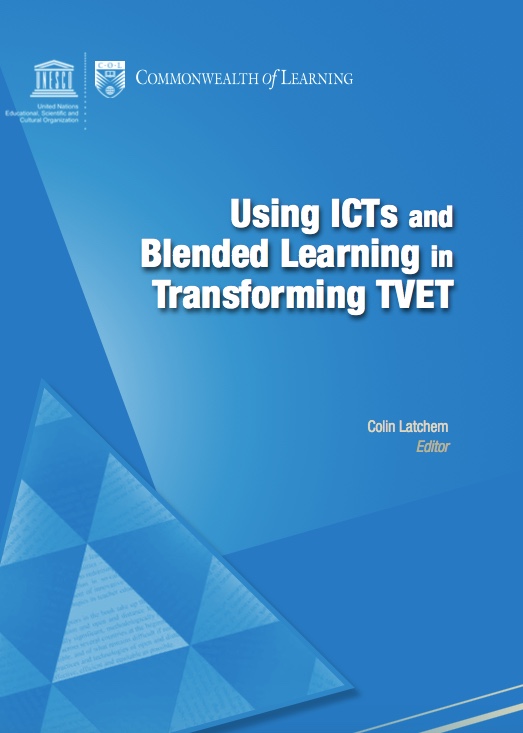The first guest post I accepted on this site (nearly a decade ago!) was from Colin Latchem, a friend and colleague I’ve known for longer than either of us care to remember. So it was a pleasant surprise to see his name pop up in a Facebook posting as Editor of a new publication from the Commonwealth of Learning and UNESCO, Using ICTs and Blended Learning in Transforming TVET.
 Specifically, the freely-available book focusses on “a series of case studies from around the world showcasing the use of information and communication technologies (ICT) and novel forms of open, flexible and technology-enhanced learning in Technical and Vocational Education and Training (TVET).”
Specifically, the freely-available book focusses on “a series of case studies from around the world showcasing the use of information and communication technologies (ICT) and novel forms of open, flexible and technology-enhanced learning in Technical and Vocational Education and Training (TVET).”
As explained by Colin, the book is a response to the calls for transformation, the needs of youth, the needs in the informal sector, gender issues, and the issue of sustainable development.
One of the strengths of the publication is the range of countries that are represented: Germany, Australia, Sri Lanka, New Zealand, Jamaica, Finland, Africa, Cambodia and Canada. Interested readers will likely focus on the countries of most relevance to their needs and circumstances, though universally applicable ideas are found in most cases. Summaries of the nine cases are found on pages 57 and 58.
Colin does a lot more than simply edit the publication. He provides additional chapters that add substantially to its usefulness and applicability. For example, after the cases are presented, he not only presents ‘Conclusions and Recommendations’, but also contributes two excellent chapters, ‘Considerations in Costing ODL and ICTs in TVET’ and ‘Planning for the Use of ICTs at the National and Institutional Levels’ (yes, the good old ADDIE and SECTIONS models turn up again in this context).
In the final chapter (p. 221), Colin explains that:
The Qingdao Declaration (UNESCO, 2015) declares that to achieve the goals of inclusive, equitable and quality education and lifelong learning by 2030, ICT-based teaching and learning needs to be integrated in all sectors of education. However, it also observes that on their own, ICTs will not bring about the required transformation and that there is a need for well-informed, long-term policies and strategies, professional development and well-researched and innovative methodologies for educational technology to play a central role in building inclusive and sustainable knowledge societies.
This book is a worthy response that admonition.